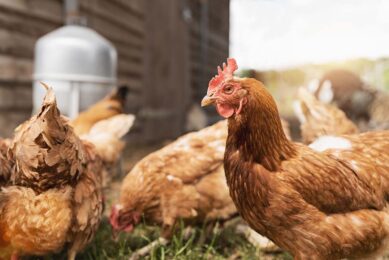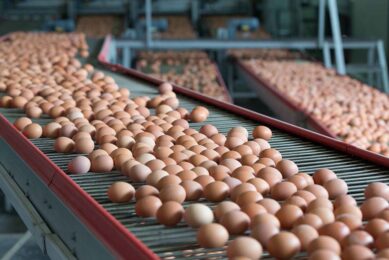Brussels fails to reach accord on illegal eggs
Fears that EU egg producers will be subject to a flood of cheap imports from countries still using conventional cages in 2012 remain, despite efforts in Brussels to find a “political solution” to the problem of illegal eggs.
Senior civil servants from all 27 EU member states met in Brussels at the end of October to try and broker a deal, but it is understood that no decisions were taken.
On the table was a series of ideas from EU health commissioner John Dalli. He is insisting that, while he will not postpone the new welfare legislation, he will not sanction the destruction of millions of illegal eggs.
Conventional cages
Instead, he is planning to step up on-farm inspections in countries which are expected to still be using conventional cages, and start legal proceedings in the case of non-compliance.
Meanwhile, any eggs from conventional cages should be marked and only be used to produce liquid egg or egg powder in the member state in which they are produced, he suggests.
But Dalli recently told EU farm ministers he would be happy for food or non-food products, such as shampoo, produced from that processed egg to be exported outside the member state in question.
Egg producer representatives have reacted angrily to the plans. “If these plans went through it would be a complete disaster,” said NFU chief poultry adviser Kelly Watson.
There was insufficient processing capacity in many of the member states where illegal eggs were expected to be produced, she said. “And saying that liquid egg must stay in the member state, but allowing the food products it goes into to be exported, is only disguising the problem.”
British Egg Industry Council outraged
The British Egg Industry Council has written to DEFRA to express it’s outrage. It points out that there would be widespread fraud, with illegal eggs intended for processing finding their way into the shell egg market. Meanwhile, exports of processed products would “wreak financial havoc” on compliant egg producers.
Instead, the BEIC suggests non-compliant shell eggs should still be saleable in the country in which they are produced for a limited period. But food and non-food products from processed illegal eggs should also only be consumed within the same member state.
It is also insisting that compliant member states be allowed to block imports of any illegal shell eggs or egg products coming from non-compliant producers.
With civil servants failing to reach an agreement at their meeting on 28 October, it is expected the dossier will be passed back to the next meeting of EU farm ministers on 14/15 November.
Animal welfare groups and MEPs have reacted angrily to Dalli’s plans, which were first tabled at a meeting of the European parliament’s agriculture committee in October.
“This is completely the wrong message to be sending out at this time and makes a mockery of this legislation,” said CIWF’s chief policy adviser Peter Stevenson.
Dutch MEP Esther de Lange said relying on infringement proceedings was far too slow and would only penalise the member state, not the non-compliant producer. “It will send them the signal that they have another three or four years.”
Source: FWi
Join 31,000+ subscribers
Subscribe to our newsletter to stay updated about all the need-to-know content in the poultry sector, three times a week. Beheer
Beheer








 WP Admin
WP Admin  Bewerk bericht
Bewerk bericht